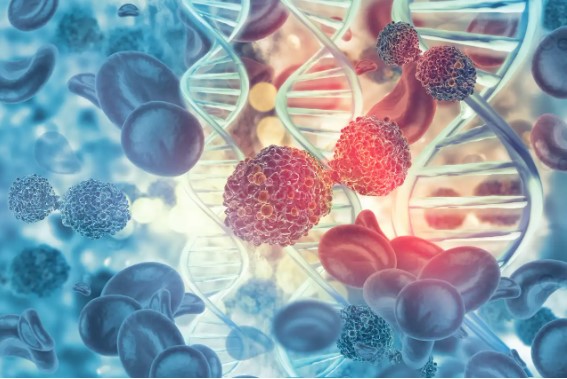Cancer: Causes, Types, and Paths to Prevention and Treatment

What is Cancer?
Cancer is a complex group of diseases that begin when abnormal cells in the body start growing uncontrollably, often forming tumors. These abnormal cells ignore normal signals that tell cells to stop growing or to die when they are old or damaged. Instead, they can invade nearby tissues and spread throughout the body. This process, called metastasis, is what makes cancer so dangerous.
Types of Cancer
There are more than 100 types of cancer, often named after the organs or tissues where they originate. Here are a few common types:
- Carcinomas: Start in the skin or tissues that line internal organs, such as lung, breast, and colon cancer.
- Sarcomas: Arise in bone, muscle, fat, or connective tissue.
- Leukemia: Begins in the blood-forming tissues like the bone marrow, resulting in abnormal blood cells.
- Lymphomas: Affect the lymphatic system, which is a critical part of the immune system.
Causes and Risk Factors
While the exact causes of cancer can vary, certain risk factors are known to increase the likelihood of developing it:
- Genetics: Family history of cancer can increase risk.
- Lifestyle choices: Smoking, heavy alcohol consumption, and an unhealthy diet can elevate the risk.
- Environmental exposure: Prolonged exposure to radiation, pollution, or hazardous chemicals.
- Viruses and infections: Certain viruses, like HPV (linked to cervical cancer), can lead to cancer.
Symptoms of Cancer
Symptoms depend on the type and stage of cancer but can include:
- Unexplained weight loss
- Persistent fatigue
- Lump or thickening under the skin
- Changes in skin appearance (e.g., dark spots or yellowing)
- Persistent cough or trouble breathing
Prevention and Early Detection
- Healthy lifestyle: A balanced diet rich in fruits, vegetables, and whole grains, regular exercise, and avoiding tobacco and excessive alcohol can reduce cancer risk.
- Routine screenings: Early detection can significantly improve treatment success. Regular screenings, like mammograms, colonoscopies, and skin exams, help catch cancer early.
- Vaccinations: Some vaccines, like the HPV vaccine, can prevent virus-related cancers.
- Awareness of family history: Knowing your family history allows you to take preventive measures and stay vigilant.
Treatment Options
Cancer treatments vary based on the type, stage, and location but often include:
- Surgery: Removing tumors or cancerous tissue.
- Chemotherapy: Using drugs to kill or slow the growth of cancer cells.
- Radiation therapy: High-energy radiation to target and destroy cancer cells.
- Immunotherapy: Boosting the body’s immune system to fight cancer.
- Targeted therapy: Drugs that target specific cancer cells without affecting healthy cells as much.
Looking Forward: The Future of Cancer Research
Advancements in technology and research continue to open new doors in cancer treatment, aiming to improve survival rates and minimize side effects. Personalized medicine, which tailors treatment based on a person’s genetic makeup, is one promising area. Early detection methods and vaccines are also evolving, providing new hope for prevention and better quality of life for patients.
Conclusion
Cancer is a formidable disease but not unbeatable. With a healthy lifestyle, awareness, and regular screenings, people can reduce their risk and detect cancer early when it’s most treatable. As research progresses, there’s increasing hope for better treatments, early detection, and, one day, a cure.
